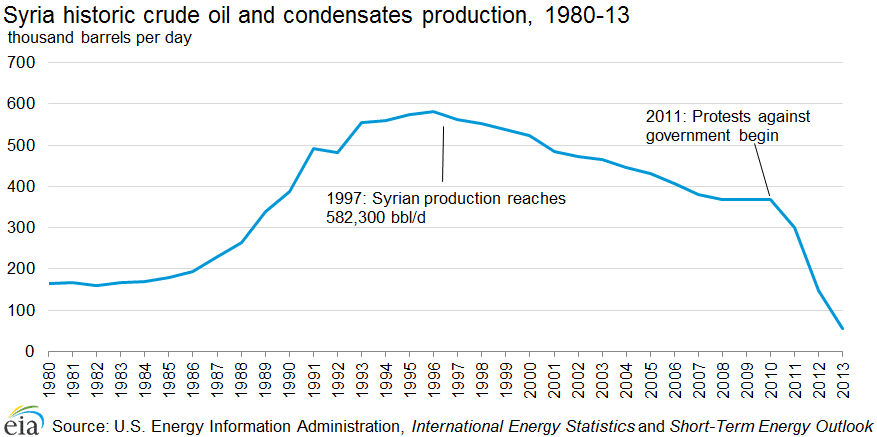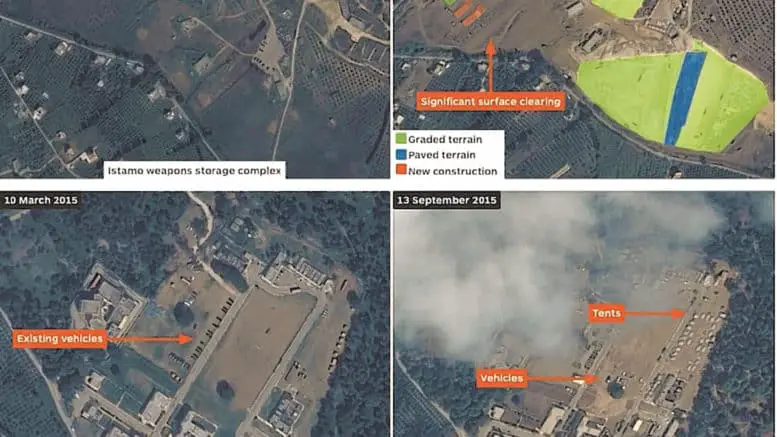To say that Syria is in the news a lot right now would be a gross understatement. The whole world’s foreign policy seems to be hinging on how to deal with the Syrian Civil War and the Islamic State. Russia, specifically, has taken major action in the region over the past two months. But what is Russia’s historical interest in Syria, and why might it want to maintain a presence in that embattled land? In seeking to understand Syria’s importance, we first need to understand how the modern state gained its independence.
In the aftermath of World War II, the territory of modern Syria belonged, as a colony, to France. Postwar France struggled to administer her colonies due to the strain of rebuilding the European homeland. Charles De Gaulle in France resisted the Anglo-American led power structures that developed after the war. This also contributed to weakened control over France’s holdings in the Levant. To regain some political leverage and maintain a French stake in the Middle East, De Gaulle even attempted to court the USSR for regional support. But at that moment, the Soviet Union had directed its political focus on the Turkish Straits, which were essential for developing trade routes from the USSR’s Black Sea and Caspian holdings. Thus, France, politically isolated, reluctantly granted Syria its independence in 1946. The fledgling nation of Syria was left without a benefactor. The United Kingdom and the United States, like the USSR, focused on other goals in the Middle East, building lucrative relationships with Jordan, Israel, Iraq, and Saudi Arabia.

Throughout the remainder of the Cold War, the Soviet Union supported Syria with sales of modern military equipment. Syria’s internal political turbulence finally began to settle when Hafel al-Assad (father of current Syrian president Bashar al-Assad) took power after a coup d’etat in 1971. The decade after Assad took power was critical for the Soviet Union because the growing economic relationship eventually opened the door for Russia to construct a permanent naval port in Tartus, which still exists today. The Tartus naval port gave Russia a base in the Mediterranean Sea without the restrictions that Turkey’s Bosporus Strait places on its Black Sea ports.
During the late 1980s, Soviet President Mikhail Gorbachev’s policies placed less focus on Syria as a strategically important partner and the relationship weakened. Likewise, after the dissolution of the Soviet Union, the decade of the 1990s saw the relationship languish as Russia focused on resolving internal issues and conflicts.
From the 2000s onward, Russia has made efforts to rebuild some of the relationship that deteriorated during the 1980s and 1990s. In 2004, Vladimir Putin agreed to write off $9.8 billion in Syrian debt owed to the former Soviet Union. Prior to the current Syrian Civil War, Russia exported refined petroleum and arms to the nation, with weapons and energy projects (including pipelines and developing energy fields) both valued in the billions of dollars. Access to the Mediterranean remained an important motive as well.

Syrian oil production has dropped drastically since the beginning of its protests. Syrian reserves, however, are quite small overall. For a larger version of this graph, click the graph.
The Arab Spring in 2011 and the subsequent Syrian Civil War have caused a major upset in Russia’s status quo with Syria. Although the major Russian state-owned arms exporter, Rosoboronexport, continues to ship weapons to Syria, the collaborative energy projects have all but ground to a halt, and Syrian trade in general has declined dramatically since 2011. Russia’s current involvement in the Syrian Civil War could be changing this, seeing boosted deliveries.
Looking back briefly over the history of Russian-Syrian relations, there are three key takeaways. First, Russia initially gained its Syrian friendship primarily because Syria was abandoned in a sense by the West. Russia has held onto this relationship for close to half a century and has developed it into something that is economically and militarily valuable. To have it all slip away if Assad loses control would seriously undermine Russia’s influence in the region. Influence matters if Russia wants to reassert itself on the world stage, and nowhere comes into the world spotlight more often than the Middle East. Second, Russia’s port at Tartus gives it a key port in the Mediterranean that is not reliant on a good political relationship with Turkey. If a regime change occurs, there will be no guarantee that the new leadership will continue to allow such a Russian presence in the region. Finally, for Russia there is also the draw of Syria’s oil. Russian corporations have experienced a very positive relationship with Syria striking major collaborative deals in the past, but Syrian instability always looms ominously, endangering long term plans. Syria’s reserves are dwarfed by many of the surrounding countries, and certainly by Russia’s own massive reserves. Couple this with Russia’s own copious oil reserves, and it casts a shadow of doubt that Russia might be in Syria primarily for its oil. Its primary goal is likely continued global influence and the projection power that Tartus allows it in the Mediterranean.


